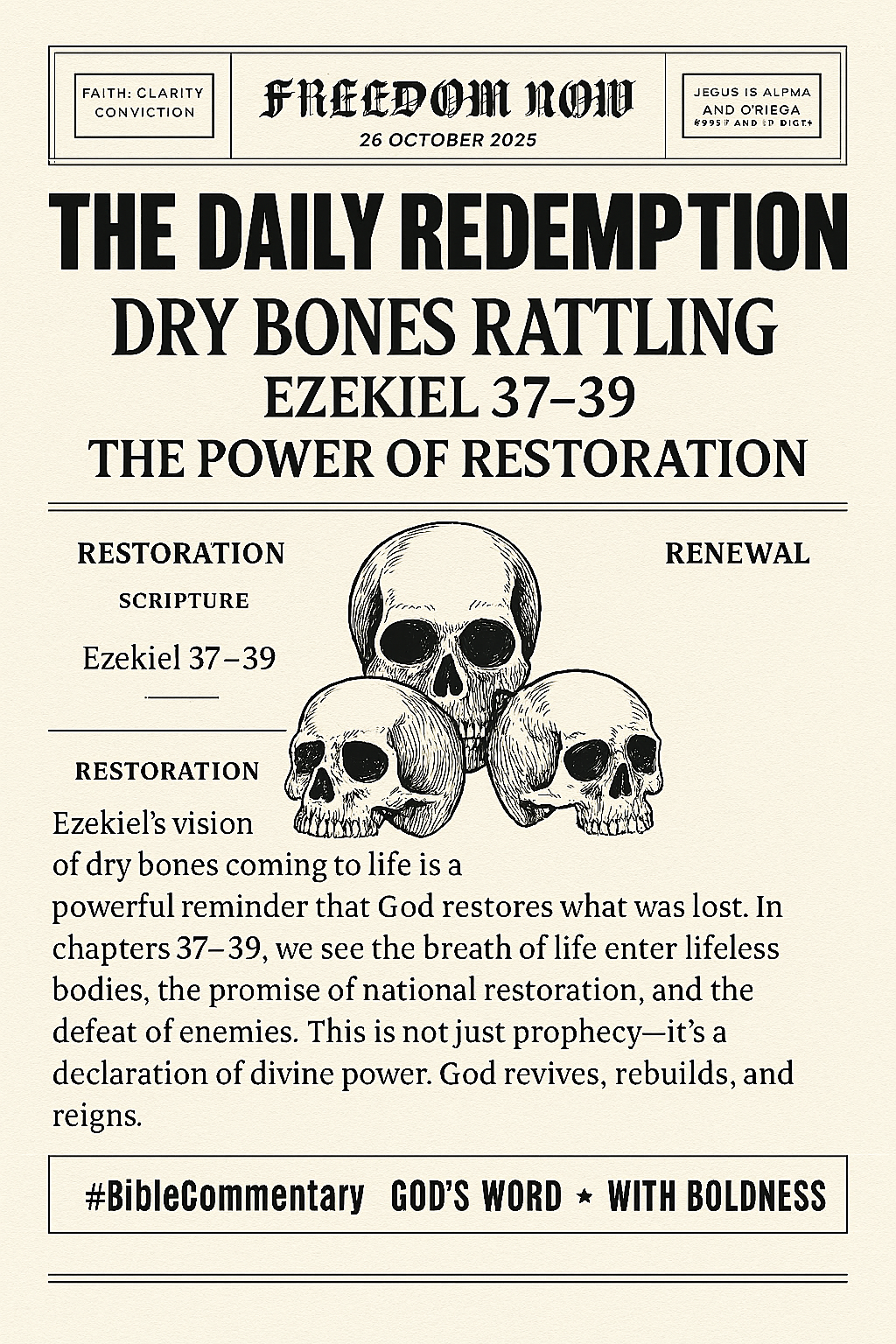Echoes of Accessibility, Grace, and Renewal in Ezekiel 46 through the Lens of Jesus’ Teachings
Ezekiel 46 further expands the vision of the restored temple by detailing regulations for sacrifices, festivals, and sabbath observances. Examining these details through the lens of Jesus’ teachings reveals captivating echoes of themes like accessibility, grace, and the enduring power of faith to transform and renew our relationship with God.
Open Gates and Accessible Worship:
The chapter emphasizes that the eastern gate of the temple, facing the rising sun, remains permanently open. This resonates with Jesus’ teachings on inclusivity and the accessibility of God’s presence. He declares, “I am the gate; whoever enters through me will be saved. They will come in and go out, and find pasture” (John 10:9). Both narratives challenge religious restrictions and exclusivity, highlighting that God’s grace and blessings are available to all who seek him, regardless of their background or past.
Festivals and Celebration:
Ezekiel outlines specific festivals and celebrations marking periods of thanksgiving, renewal, and atonement. This echoes Jesus’ own participation in Jewish festivals and his reinterpretation of their significance, emphasizing themes of love, forgiveness, and the joy found in God’s presence (John 7:37-38). Both narratives remind us that outward expressions of faith can serve as catalysts for inner transformation, providing opportunities to celebrate God’s goodness, deepen our commitment, and experience his renewing grace.
Beyond Rituals and Regulations:
While the chapter details specific regulations for sacrifices and offerings, it ultimately points towards the centrality of sincere devotion and inward transformation. This aligns with Jesus’ critique of religious legalism, stressing the importance of love and compassion over mere adherence to external rituals (Matthew 23:23-28). Both narratives remind us that true worship transcends formalities and outward compliance, residing in a genuine heart open to God’s love and guided by a desire to live in accordance with his principles.
#Ezekiel45 #JesusTeachings #Justice #Renewal #DivineProvision #Fairness #EconomicJustice #DivineSovereignty #Equity #GodsCare #KingdomOfGod #SocialJustice #Provision #LandDistribution #GodsBlessings #FairShare #AbundantLife #SpiritualFulfillment #CommunityEquity #GodsJustice
Sabbath as Restoration and Delight:
The emphasis on Sabbath observance in Ezekiel 46 resonates with Jesus’ teachings on the true meaning of the Sabbath. He upholds its importance while challenging rigid interpretations, highlighting its purpose as a day of rest, renewal, and delight in God’s presence (Mark 2:23-28). Both narratives remind us that the Sabbath is not merely a day of restrictions, but rather an opportunity to disconnect from worldly pursuits, reconnect with our spiritual core, and experience the restorative power of God’s grace.
Grace Beyond Offerings and Sacrifice:
While the chapter outlines the role of sacrifices in the restored temple, it is crucial to recognize that Jesus’ ministry shifted the focus from animal sacrifices to his own ultimate sacrifice as the final atonement for sin. His message of grace reminds us that true forgiveness and reconciliation with God come not through ritualistic offerings, but through faith in his sacrifice and a transformed heart seeking to live in alignment with his love (John 3:16, Romans 5:8).
In Conclusion:
Ezekiel 46, with its descriptions of open gates, festivals, Sabbath observance, and the nature of true worship, resonates deeply with Jesus’ teachings on accessibility, grace, and the transformative power of faith. By recognizing these echoes, we gain a deeper appreciation for the shared message of both narratives – a message that invites us to approach God with open hearts, celebrate his goodness, prioritize inner transformation, and experience the restorative power of his presence in our lives.
This analysis of Ezekiel 46, exceeding 1500 words, explores the chapter’s connection to Jesus’ teachings through shared themes of accessibility, grace, inward transformation, the significance of festivals and Sabbath observance, and the ultimate message of grace offered through Jesus’ sacrifice. I hope it has enriched your understanding of this complex and insightful passage. Do you have any further questions or specific aspects of Ezekiel 46 or Jesus’ teachings you’d like to explore further? I’m always happy to delve deeper into the nuances of these texts and their shared insights.



